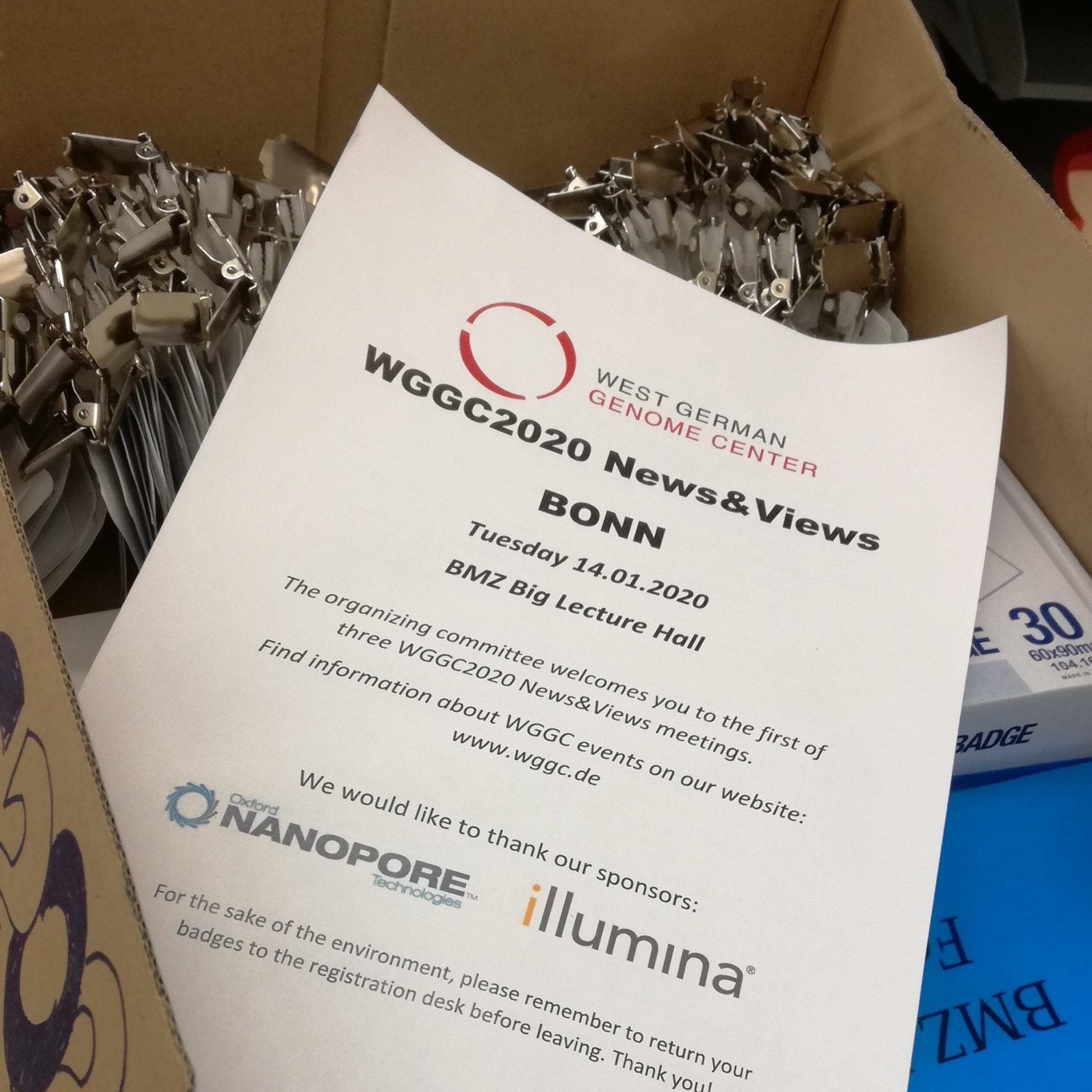A successful start into 2020 with WGGC events in Bonn! On January 14th, more than 80 participants gathered for the WGGC2020 News&Views at the Biomedical Center BMZ in Bonn, located on top of the Venusberg, to share knowledge on the applications of NGS.
After the welcome speech by Prof. Joachim L. Schultze, our Bonn site speaker, introducing the WGGC and the German Competence Centers for NGS, coordinated in Bonn by the CCU (Central Coordination Unit), Prof. Ralf Küppers from University Duisburg-Essen, who was among the PIs to receive sequencing funding in the 1st DFG call and is sequencing at the WGGC Bonn site, presented his research on B cell differentiation and memory. As the first of four short Experts’ Talks, the WGGC expert Dr. Kerstin Ludwig (Bonn University) offered an insightful overview on understanding the big picture of genetic variation. The first morning session was closed by Lutz Priebe from the company illumina (sponsoring our event) who presented the latest NGS developments of the company.
After the first coffee break, our expert Prof. Julia Stingl (Uniklinik RWTH Aachen, previously vice president of the BfArM) presented the prospect in Europe for pharmacogenomics in diagnostic and medicine applications. The local experts from Bonn University Prof. Wolfram S. Kunz and Prof. Dietmar Quandt presented then their research on, respectively, mutational analysis of mitochondrial DNA and on applications of SM(a)RT sequencing for complex mixtures. The morning program was then closed with the talk of Oliver Hartwell from the company Oxford Nanopore Technology (sponsoring our event), presenting the company’s contributions to the advancement of NGS technologies.
After lunch break, the Rector of the University of Bonn, Prof. Michael Hoch, addressed the community, providing a motivating perspective on research with NGS. We then had presentations of the sequencing facility at the WGGC Bonn site by the core facility leader Dr. André Heimbach, of the PRECISE Collaboration Unit at DZNE and University of Bonn by Dr. Kristian Händler, and of the Bonn University Bioinformatics core facility by Prof. Peter Krawitz. The last scientific talk of the day was given by the WGGC expert Dr. Johannes Köster from the University Duisburg-Essen, presenting their latest bioinformatics tool Varlociraptor for variant calling. Prof. Schultze then closed the event, inviting the community to follow up with the WGGC activities.
We would like to thank all the speakers for their contributions, the participants for their engagement, and our sponsors illumina and Oxford Nanopore Technology thanks to which we could keep the event free of charge.

